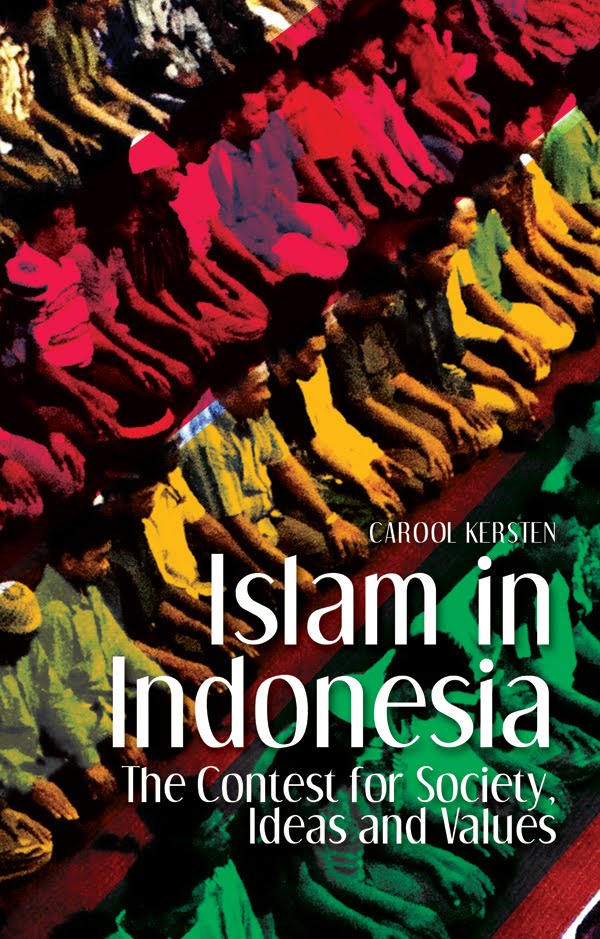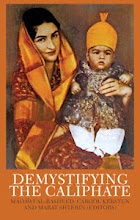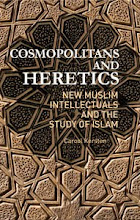The more high-profile response came on 29 September from the leader of the world's most populous Muslim country. Indonesian president Susilo Bambang Yudhoyono (SBY) used again a G20 summit to present himself as the architect of a new global policy for the Muslim world's interaction with other civilizations.
Whereas in April he had outlined Indonesia's bridge function between the rest of the Asia, the Muslim world and the West during a lecture at the London School of Economics (mentioned my post of 3 September 2009), in September he provided a more generic vision for resolving the conflicts in the Muslim world and ease its relations with the rest of the global community. At the beginning of his second term in office, reinforced by an even stronger electoral mandate, SBY's confidence as a leading figure in the Muslim world rings through in the no less than nine imperatives he suggested in a speech entitled 'Harmony Between Civilizations' delivered at Harvard's John F. Kennedy School for Government, after the G20 meeting in Pennsylvania.
Recalling Samuel Huntington's seminal article of sixteen years ago, in which the latter defined a 'Clash of Civilizations' as the governing paradigm for the 21st century, SBY opined that, even though he considered it a counterproductive projection, it must yet be acknowledged that the fault lines identified by Huntington are 'not a trivial reminder' of the many complicated issues affecting international relations.
A more harmonious way of global interaction however would first of all depend on exercising 'soft power' instead of 'hard power'. SBY cited the example of the thirteenth-century Islamic civilisation which was at the time the most sophisticated in the world due to its enormous thirst for learning. The accrued body of knowledge was later utilised by the Western Renaissance, showing how 'civilizations have built on each other's knowledge and have become enriched by it'.
The second imperative is the need for a much intenser global dialogue. Some initiatives in that direction have actually been launched by Muslim states. In conjunction with Spain, Turkey established the Alliance of Civilizations and, more recently, Saudi Arabia convened the Interfaith Conference at the UN.
The third imperative is finding solutions for the actual political conflicts in which two out of every three Muslim countries are caught up. This needs also a degree of soul-searching on the part of Muslim nations, instead of blaming all problems on a concerted "war against Islam".
The fourth and fifth imperatives concern the need for moderation and turning multiculturalism and tolerance into a 'global norm'. This can only be achieved if globalisation is made to work for all (6) through a reform of global governance (7), as there can be no genuine harmony among civilisations as long as the majority of the world's 1.3 billion Muslims feel marginalised and insecure. While the G-20 is more representative of today's global dynamics, the UN Security Council still reflects the power balance of 1945 rather than 2009. Therefore the council needs to be restructured to keep up with today's geopolitical realities.
The real battlegrounds to achieve such a rethinking of world order lie in the education systems (8) where the global conscience (9) of future generations s shaped. His experiences with the overwhelming response to the tragedy hitting the Indonesian province of Aceh in northern Sumatra with the 2004 Tsunami, convinced SBY that such a global conscience indeed exists.

A week later, the French-Algerian historian of Islam Mohammed Arkoun formulated a more intellectualised assessment in his closing remarks at the conference 'Construction of Belief' (see my post of 11 October 2009). Engaging with what in Braudelian terms is called the 'geohistorical space' of the Mediterranean has been Arkoun's life-long scholarly concern, as it allowed him to move away from the geo-political dimensions of the post-WWII perspective on the relations between civilisations.
This forms part of his concern for various forms of 'reason' in which he has shown himself to be equally critical of the miserable track record of religious thought as well as the 'political theology; of modernity, which can be traced to the origins of monotheism (some 4000 years ago) and the Greek concept of logos respectively. Both have been ever present, working and creating the violence that has marred the history of the Mediterranean, and give Arkoun the long duree perspective needed to analyse the beginnings of the current situation in that region.
According to Arkoun, the Mediterranean Space cannot be accurately described in terms of a north-south divide grounded in notions of 'true religion'. However current-day modern thinking nor politics appear to be able to break free from what has become a vicious circle of the Christian-Muslim dichotomy in the Mediterranean. These two traditions have been at loggerheads since the end of the thirteenth century when the Muslim world turned against the so-called 'intrusive sciences' (al-Ulum al-Dakhiliya) that is the Hellenic legacy it had embraced in earlier centuries.
To deal with this polarisation a new dictionary is required to adequately conceptualise this situation. The Islam 'on the ground' is not reflected in the way it is ethnographically or culturally represented in scholarship.
In political terms, post-independence Northwest Africans had been expecting a democracy as propagated by the West, instead their region has regressed into an imagined model of the early community in Medina. Authoritarian regimes have created a fictive Islam, allowing them to claim to be following a divine law. Unfortunately, the way political scientists tend to study this situation is too short-term to accurately analyse the local phenomena. what is needed is a corrective through a new scholarship in religion.
So far this scholarship has not emerged because both intellectuals and politicians are locked into a form of logocentrism that has declared whole areas of our cultural heritage or civilisational legacy as 'The Unthought', which through existing power structures has been been reified into the 'The Unthinkable'.
It is in the realm of actual global politics that the missing key word (parole absente) has finally been pronounced by Barack Obama, when he acknowledged that until now the West has spoken with a hegemonic voice. This extends not only to contemporary post-war and post-cold war politics but also to the cognitive status of Revelation, to which Arkoun not only counts sacred scriptures such as the Bible, The Gospel, or the Upanishads for that matter, but also the oeuvre of Karl Marx to which a similar status has been attributed.
This sanctifaction and sacralisation much be recognized as the outcome of social and historical processes and the only way to escape from it is to trangress all boundaries of knowledge production, displace all theologies into the realm of linguistic analysis, and thus surpass hegemonic discourse.
* for the video of Obama's speech, click here







No comments:
Post a Comment